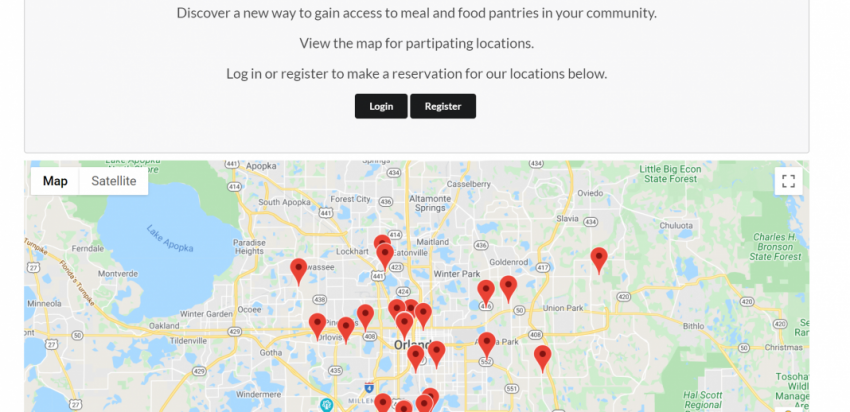More Than an App: How Christian Wolfe and Billy Leondike Created a Platform That Helps Others

Looking out the window of his apartment in St. Petersburg, Florida, Christian Wolfe watched as cars lined up outside the local food pantry, waiting for government-subsidized groceries. The community he lives in is heavily employed by hospitality, so people were hit hard by COVID-19. “There are a lot of folks who need assistance right now,” he said.
Christian has watched this daily ritual every day for the better part of 2020 — and beyond noticing the steadiness of the demand, it struck him that the process could use tech help. He thought about how simple it is to reserve a table at a restaurant through an app or website. “Why can’t we offer that same convenience to those who need help?” he asked himself.
And an idea was hatched.
Just getting started
Christian met Billy Leondike through UCF Coding Boot Camp, which they both attended during the COVID quarantine. They’d collaborated with each other on a previous project before embarking on their final boot camp project, MealPlan.
“Once Christian floated the idea by me and we presented it to our instructor, we got really good feedback,” said Billy. “This could actually be something with real legs.”
As for any new endeavor, they ran into some speed bumps. Past projects, completed in teams of four, were backed by more manpower; for this project, they had only one another. “We now had to build a full stack app with just one other person, while still learning React, so it seemed like quite a workload to tackle,” said Billy. “Fortunately, I would say that Christian and I are fairly strong coders. We were able to tackle a lot of the stuff that came our way.”
Christian noticed there was very little data available about food pantries. “To circumvent that, Billy built a JSON file of food pantry locations in Orlando open during COVID, which provided services one or more days of the week,” he said.

Due to a disconnect between Heroku and their website setup, they also ran into deployment issues, encountering difficulty pulling and rendering reservations from the database. Christian is hopeful they can work out these issues and deploy a new version soon.
Simple yet effective
Christian and Billy decided to simplify website design and navigation, making the app accessible to as many people as possible. It’s set up with a landing page featuring an overview of what the application does. A map is available which shows different food pantries in the area and users can log in to make a reservation.

Using React Datepicker, users are able to select a date and time for grocery pickup on a calendar. “This is where we want to add more functionality in the future,” said Christian. “Mainly, a cancellation feature, and a way to reschedule.”
They plan on starting with major cities in Florida, then branching out to larger cities around the country. “We have a template that allows us to add in times, phone numbers, and descriptions,” said Billy. “From there it would work dynamically with our Google maps API and our Accordion.”

Solving real-world problems using real-world experience
Christian and Billy wanted their project to address a real-world problem, and they succeeded.
During Demo Day, they ran into Julie Potyraj, a Senior Marketing Manager at 2U, Inc., who understands the world of food pantries from her volunteer work in the DC area. Julie shared her enthusiasm for the new app. “It was my first experience hearing someone’s excitement over an app that I had a role in building,” said Christian. “She really saw our vision — and how the app would help solve a prevalent problem.”
The MealPlan project allowed Christian and Billy to explore the needs of their own community — and apply their solution to communities everywhere. Beyond eliminating long lines, the end result ensures widespread access to healthy food.

